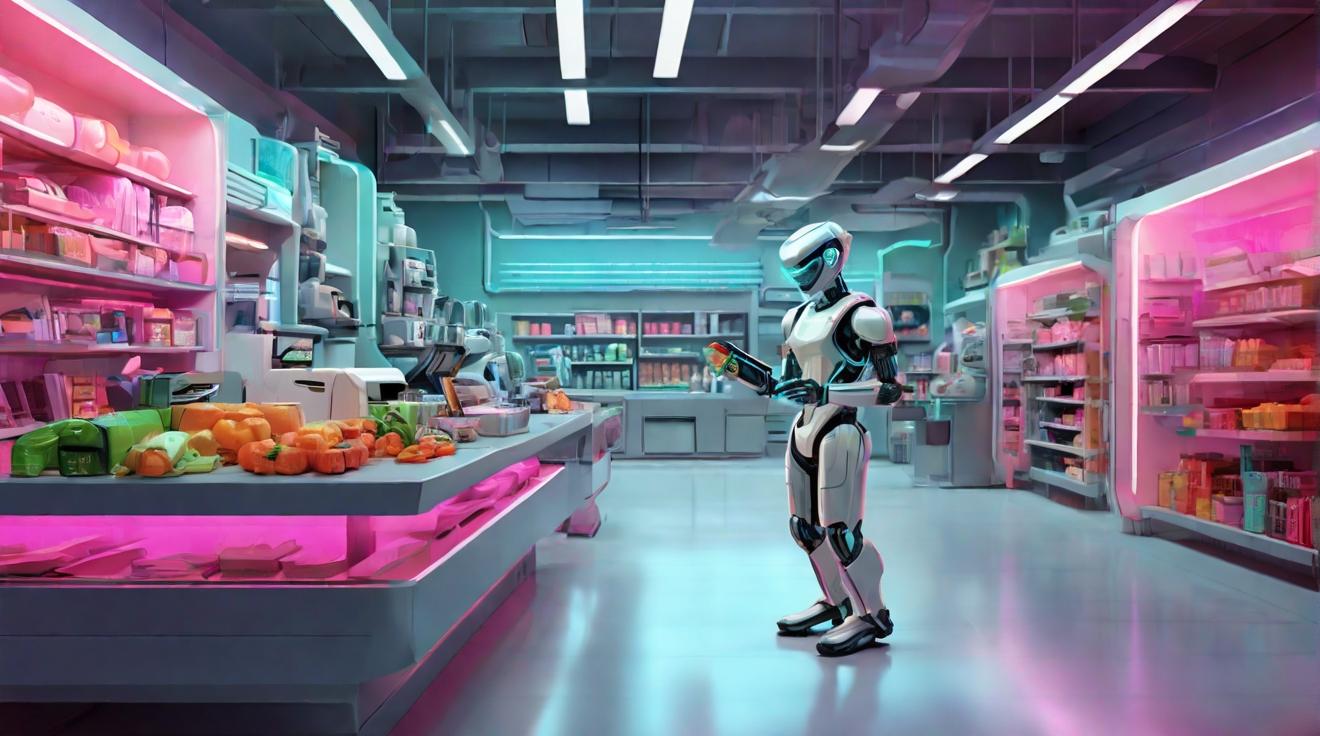How AI is Transforming Supermarkets and Boosting Profitability
Artificial intelligence (AI) has quickly made its mark on various industries, leaving business owners wondering about its potential and scalability. One sector that has seen significant impact is the supermarket industry, where AI has the power to enhance profitability, improve customer satisfaction, and reduce overstocks. Let's explore some exciting ways in which AI is already making a difference in supermarkets.
1. Shape Supermarkets' Recipes
Supermarket buyers face the challenging task of determining which products to sell while also aiming to offer customers exclusive and flavorful items. British supermarket chain Waitrose took a unique approach to tackle this challenge when developing a new Japanese-inspired product line. Instead of relying solely on market research data, which every other supermarket uses, Waitrose invested in AI technology. The company implemented an AI platform that analyzed the rising popularity of Japanese cuisine as a social topic and identified the most popular flavors. By combining this information with internal sales data, Waitrose was able to make informed decisions about which products to invest in, giving them a competitive advantage.
2. Find Soon-To-Expire Products
Reducing food waste and capitalizing on nearly expired goods can be a win-win situation for both customers and supermarket executives. Danish-based app, Too Good To Go, initially addressed food waste by partnering with stores and restaurants, helping them find customers willing to purchase expiring food at discounted prices. Recently, the app expanded its focus to AI in supermarkets. The new AI-powered software assesses products' likelihood of selling and recommends discounted prices as items approach their expiration dates. This efficient process significantly reduces the need for manual checks, with workers only having to inspect a mere 1% to 7% of goods to locate short-dated items. In a trial at a French supermarket chain, AI technology revolutionized the discounting process for nearly-expired cheeses, allowing for a more granular strategy that considered factors like region and seasonality.
3. Introduce an AI Grocery Store Robot
AI has the potential to revolutionize the way grocery stores interact with consumers. Carrefour, a leading supermarket chain, explored this idea by launching an AI-powered grocery delivery service in a corporate complex in Belgium. Employees in the facility were able to choose from a selection of 500 food items and have them delivered by robots. The convenience of ordering quick and healthy options without leaving their workplaces was well-received by customers. Based on the trial results, Carrefour may expand this service to larger cities and areas not currently covered by their home delivery networks. The use of AI-powered robots in grocery delivery opens up new possibilities for customers who may have difficulties or limitations when visiting physical stores.
These real-world examples demonstrate the potential of using AI to transform supermarkets and offer enhanced customer experiences. Now that you have some inspiration, it's time to think about how AI could address specific needs and challenges in your own supermarket. Setting goals and developing plans to incorporate AI technology will drive excitement and pave the way for a future where AI plays an increasingly diverse role in grocery stores.
Analyst comment
Positive news. The market for AI in supermarkets is expected to grow as more businesses recognize its potential to boost profitability, reduce waste, and improve customer satisfaction. AI platforms can help with product development, identify soon-to-expire goods, and even enable grocery store robot deliveries. As more success stories emerge, the adoption of AI in supermarkets is likely to increase.













